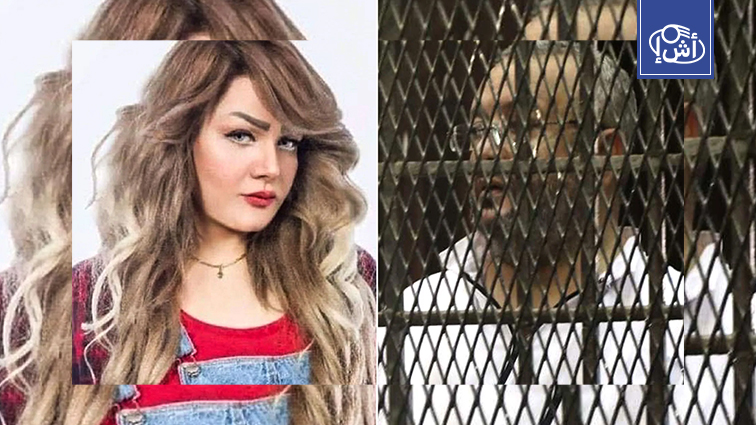On Monday, the Egyptian Court of Cassation issued a final death sentence for former judge Ayman Abdel Fattah, after convicting him of killing his media wife, Shaima Gamal, and burying her inside a farm in the Badrashin area of Giza, according to local Egyptian newspapers.
The government newspaper Al-Ahram reported that the Court of Cassation upheld the death sentence for Abdel Fattah and his partner in the crime, Hassan Al-Gharably, the owner of a contracting company, which was issued by the South Giza Criminal Court in September 2022.
Investigations showed that the first accused, Ayman Hajjaj, who was the victim’s husband, planned to kill her because she threatened him with revealing their secrets, as he had business transactions and partnerships that were not permitted by his position, as he worked as a judge and vice president of the State Council.
According to investigations, the murdered woman bargained with her husband for sums of money in exchange for silence, which prompted him to participate with the second accused, Hussein Al-Gharabli, in killing her, and the latter accepted in exchange for a sum of money that the first accused promised him.
Investigations revealed that the defendants agreed to rent a remote farm to kill her and hide her body in a grave they would dig, according to the Egyptian newspaper “Youm 7.”
The prosecution indicated that the defendants bought tools to dig the grave and prepared a gun and a piece of cloth to kill the victim and paralyze her resistance, chains and iron shackles to transport the body to the grave after she was killed, and an incendiary substance to disfigure its features before burying it.
The Giza Criminal Court stated in the merits of its death sentence that “on June 20, the first defendant accompanied the victim to the farm, claiming that he intended to transfer ownership to her if she liked it, so Al-Gharabli waited for them until they showed up.” As soon as they entered the private room of the farm, the first accused grabbed the victim by the cloth shawl she was wearing and assaulted her on the head with the butt of his firearm, causing her to fall to the ground. He jumped on her body and pressed his knees and hands on her face, gagging her mouth and holding her breath.
The court added that during this time, the judge summoned his partner to help him hold her feet and tie them with a piece of cloth, while Hajjaj remained silent for about 10 minutes until her movements completely calmed down, and when he was certain that she had died, he took off the gold jewelry that she was wearing and tied her neck tightly. He tied her body with an iron chain, fearing that she would come back to life.”
She indicated that the defendants transported the victim’s body to the pit they had prepared for burial, adding that Hajjaj threw scalding fire water on her body with the aim of disfiguring her features.
Days after the crime, the police succeeded in arresting Haggag in the city of Suez, east of the country, before he confessed to his crime.
Before the court, the judge admitted that “after the disputes between them escalated due to her frequent threats to him by publishing a video clip of their marital relationship, she photographed her without his knowledge and exposed the matter of his marriage among his acquaintances, and her request for the sum of 3 million pounds to accept that he divorce her without harming his future and reputation, he resolved to take her life in order to be saved.” From there, he agreed with his accused friend to rent a farm in the Badrashin district, far from the eyes of citizens, to carry out the plan to kill the victim.
The convicted judge said that his partner, Al-Gharabli, charged him 360,000 pounds to agree to participate in the crime, according to what Al-Shorouk newspaper reported.
Egyptian Ministry of Electricity launches huge investments in the energy sector
